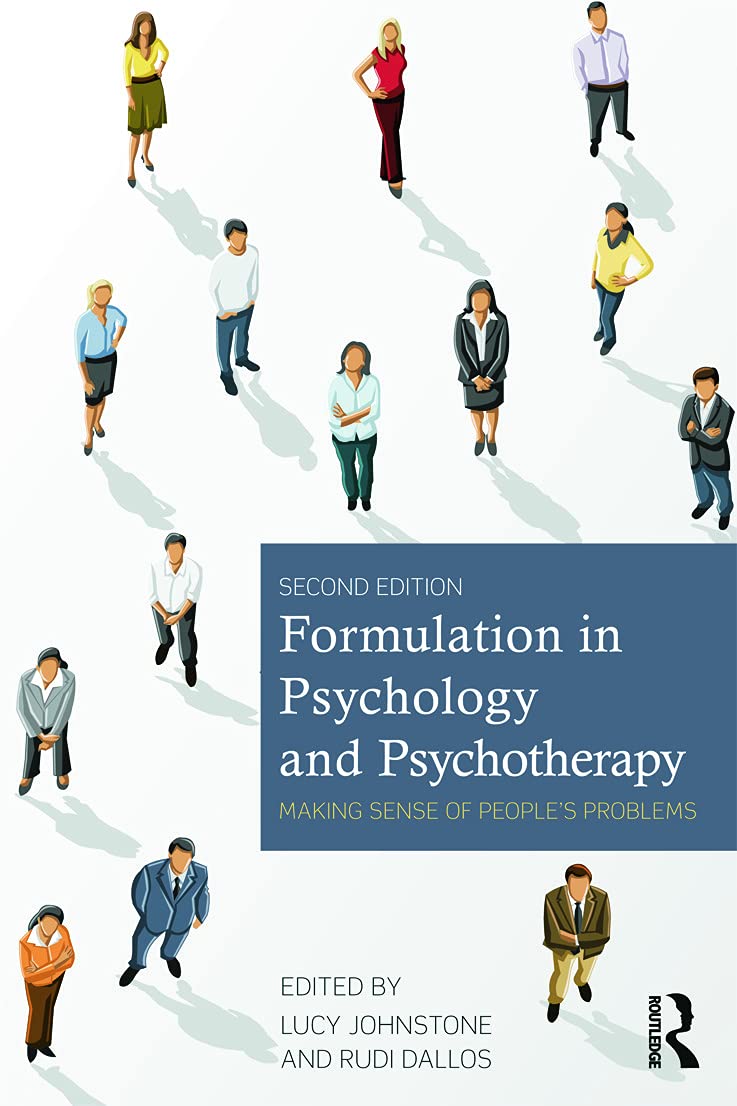About this deal
It introduces the reader to the theory and practice of formulation through the discussion of two clients (one adult and one child focused problem), whose problems are formulated from the perspective of 5 different therapeutic traditions: systemic, psychodynamic, community, cognitive - behavioural and social constructionist/narrative. However, the book's occasional infelicities are offset by consideration of areas of a patient's positive strength and resilience within formulation, as well as a healthy wariness concerning the dangers of allowing formulation to unduly restrict the ability to see what is in front of us. This is an immensely useful book; practical, creative and still unique in its particular coverage of psychological models.
This Friendly Formulation diagram presents all of the these 5 p's in an accessible way, framed by the question "How did the problem develop? The book is unique in including newer therapeutic approaches such as narrative therapy and social inequalities; it critiques and takes forward recent work on integration, and provides a lively and challenging critical evaluation of the area as a whole.Please also list any non-financial associations or interests (personal, professional, political, institutional, religious or other) that a reasonable reader would want to know about in relation to the submitted work. Often, little attention is paid to how a formulation would be used to facilitate treatment within a particular model, in favour of its purely descriptive functions. If this is the first time you used this feature, you will be asked to authorise Cambridge Core to connect with your Google Drive account. In this sense, those drawn to narrative and more generally qualitative understandings of human experience will apprecaite the attention to clients' life stories and ways of making meaning of the struggles they face. Therapeutic alliance in cognitive therapy for schizophrenia and other long-term mentally ill patients: development and relationship to outcome in an in-patient treatment programme.
Some chapters, such as those on cognitive–behavioural therapy and systemic family work, are exemplary introductions to formulation within these models. Work with the client described in this single case report provided an opportunity to explore the use of formulation as intervention and evaluate ways in which it may or may not prove helpful by interviewing the client directly about her experience of the process. Several themes were identified and these relate to decision-making and experience, specific guidelines to aid quality of formulations and a significant lack of understanding of clients' views on the formulation process and its outcome. However, the evidence base supporting formulation and its possible interventive capacity is limited, and there is little empirical evidence exploring how clients perceive formulation as part of therapy. Access options Get access to the full version of this content by using one of the access options below.
The book encourages the reader to take a constructively critical perspective on the many philosophical, professional and ethical debates raised by the process of formulating people's problems. Case formulations are best completed collaboratively, with clients positioned as the 'experts in themselves'. In: Case Formulation in Cognitive Behaviour Therapy: The Treatment of Challenging and Complex Cases (ed. To save this article to your Google Drive account, please select one or more formats and confirm that you agree to abide by our usage policies.
Formulation is widely considered a critical component of psychological therapies, and is thought to have a number of benefits both for the therapeutic process and the client directly. It introduces the reader to the theory and practice of formulation through the discussion of two clients (one adult and one child focused problem), whose problems are formulated from the perspective of 5 different therapeutic traditions: systemic, psychodynamic, community, cognitive- behavioural and social constructionist/narrative. Lucy Johnstone is a consultant clinical psychologist and a former Programme Director of the Bristol Clinical Psychology Doctorate. Psychometric properties of the 42-item and 21-item versions of the Depression Anxiety Stress Scales in clinical groups and a community sample.It looks at the growing trend for formulations that draw on two or more therapeutic models and includes two chapters dealing with integrative formulation. Books like this one reemphasize the necessity of grounding clinical practice in clear articulations of theory and rich descriptions of clinets' lives and experiences. The book sees formulation as a dynamic process which explores personal meaning collaboratively and reflectively, taking account of relational and social contexts. Case conceptualizations (formulations) help therapists and clients come to a shared understanding of a problem. which is now in its second edition, demonstrates the process of clinical formulation from a wide variety of clinical perspectives.
 Great Deal
Great Deal 